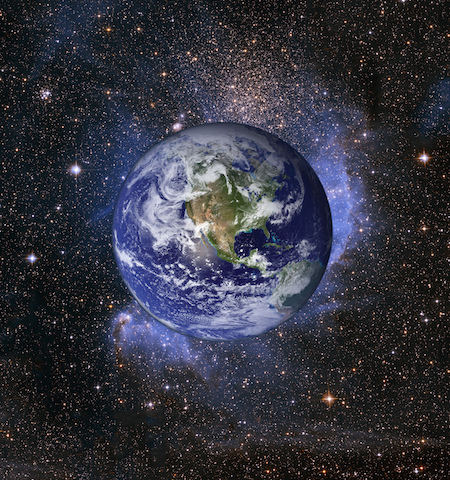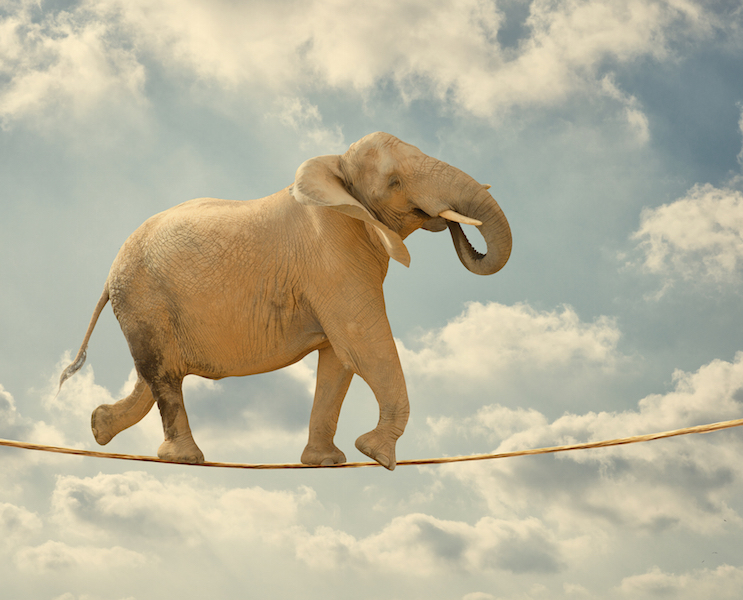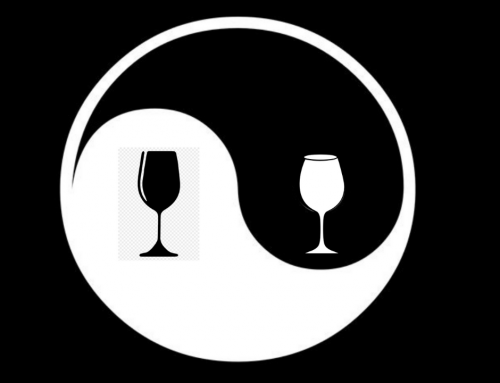What is Deep Ecology?
Deep Ecology dissolves the central delusion of separation between humans and Earth.
It helps us to talk about the ‘elephant in the room’, and just how precarious the balance of life is at this point in time.
It is an experiential philosophy. It is something one can experience, not merely philosophically understand or intellecturally ‘get’. Deep Ecology is a perspective wherein one becomes immersed in the awareness of how the environment is integral to our being. It continually shows us the interconnection of all things, and that humans are just one strand in a profoundly complex and beautiful web of existence. It has been called “a biological experience of religion.”
“Deep Ecology involves asking the deeper questions.” – Professor Arne Naess
Arne Naess a Professor from Oslo University is credited with coining the term “Deep Ecology”. Deeply motivated by Rachel Carson’s ‘Silent Spring’ (1962) – the book who’s title that alludes to a Spring time when no birds were chirping because they were rendered unable to reproduce because of pesticide pollution. Naess was also influenced by Mahatma Gandhi’s earlier success in triggering Indian independence through non-violent direct action.
Naess articulated how our environmental crises are the sum result of an error in philosophy:
A collection of unspoken, assumptions and attitudes condone, and often encourage, the use of Earth and all its resources for the primary benefit of the human species.
This erring ideology disassociates humans as being independent from the rest of the Earth and it’s ecosystem. Or as Professor Paul Ehrlich put it, we’re a part of the tree of life and ‘we’re sawing off the branch we’re sitting on’. This way of thinking has paved the way for massive destruction, pollution and annihilation of species and habitats worldwide.
It has creates an army of what John Croft has called “ecopaths”, hell bent on attaining human gain regardless of ecological destruction.
Environmental activist and founder of the Rainforest Information Centre, John Seed recounts how, in the 1970s, he believed that by making people aware of forest destruction, everyone would agree that we stop doing it. After a few years of successful campaigning, saving wilderness such as The Franklin River Catchment, he realised that regardless of the awareness, the actions didn’t change and forests kept getting destroyed.
Seed realised that our way of thinking that lies behind the destructive actions, is fundamentally the issue that needs to be changed.
Deep Ecology helps to clarify awareness of our total dependence upon water, air, bees, microbes, trees and the indeed all Earth beings as well as the entire ecosystem and cosmos. In many ways it is a combination of the thinking of systems theory, Buddhist philosophy, subatomic physics, Gaia, Complexity and Chaos theories, which accesses a new paradigm of thinking. It removes the human-cantered biases we are entrenched in and frees us to live in acknowledgement of our utter interconnectedness. It brings us into experiencing life in this way.
Scientist James Lovelock articulated the Gaia theory (1989).
Gaia Theory recognises the Earth as a living entity.
Humans are just cells of this organism. Contemporary science research is regularly discoveries are revealing the intricate relationships of natural ecosystems, and a sophistication that is indeed both mind blowing and breathtaking. There is no way humans could ever hope to create anything similar. Deep Ecology helps us recognise the environment is us and we are utterly interconnected and dependant upon it.
If you are in any doubt about our interconnectedness with the planet, hold your breath for 10 minutes while you think about it.
The study of Ecology understands the web of life, from an intellectual level. We understand the food chain, and how we stand at the top of it. This is referred to as superficial or ‘shallow’ ecology. It comes from an anthropocentric (human-centered) perspective, as this type of ecology understands the importance of nature in relation to the survival of humans. For example, a forest has value for its medicinal plants to cure humans, timber resources for human constructions and oxygen production for humans to breath and the animals that humans can eat or have for amusement.
Our human-centric perspective has significantly contributed to the global catastrophes we are now facing, which is also referred to as the Sixth Extinction process
John Seed describes it as “we’re running back down the aisles of a train hurtling towards a head on collision, thinking that might save us. We need to stop and get off the train.” Currently 200 species become extinct a day, says Seed. Much of the extinction is due to ongoing deforestation, wiping out unique ecosystems and the critters that lived in them, many which have not even been ‘discovered’ yet.
“Steeping ourselves in the reality of extinction … could exert sufficient pressure on the mind that could lead to some good ideas.” – John Seed
Issues such as climate change, ocean acidification, the Great Pacific Garbage Patch, desertification, the dead zones, loss of 90% of big fish from the oceans and ‘empty forest syndrome’ are the consequence of the perspective that Earth is here for human preferential use and exploitation, suggests Eileen Crist.
Deep Ecology challenges humans to step out of their ‘normal’ perspective.
Arne Ness proposed the concept of developing our “ecological identity” is needed. That is rather than recognising ourselves within our social network or from an egoic, personality perspective, we come to develop an identity within our ecological network, as identities within the whole environment. Recognising that we are but one strand in a complex web of life.
Satish Kumar from the UK, takes Deep Ecology a step further, and enters into Reverential Ecology, where we recognise all of nature as sacred and divine. Each of the 8.4 million species on Earth has a right to live suggests Kumar. Kumar’s religious background is the Hindi Jain tradition. Jainism honours all life forms, and strives to not harm or degrade life forms, and that deeply cherishes the intrinsic value of nature. Reverential Ecology recognises nature as divine, the home of God. It has mutuality, reciprocity, interdependence and is creative, according to Kumar.
Deep Ecology includes ideas that are held sacred by indigenous people around the world.
Most notably, that the Earth is our Mother, the source of our physical selves, and the provider of all nourishment and life. Globally, indigenous cultures celebrate the Earth on a regular basis with rituals to acknowledge and honour the sacredness and value, of the Earth. Regularly returning to this honouring, they simultaneously live harmoniously within it. Traditional indigenous cultures have ingrained sustainable processes, which acknowledge the importance of all beings (not just humans), and enabled them to exist in harmony with the planet for untold thousands of years.
Western civilization, and in particular the market-capitalist system, has managed to significantly damage Earth systems within a few short centuries. Market growth is the aim, in which waste has been encouraged and a disposable culture has grown. How is it that we are only now recognising, that ‘away’ doesn’t exist? It’s all Earth. Economics, which has essentially steered the planet to our current juncture, considers the environment an externality, defined as ‘a cost inflicted on the environment, not borne by those who inflict the cost’, which illustrates these human centric ideas.
Deep Ecology’s thinking is starkly contrasted to the mainstream thinking propelling the market-capitalist system.
Deep Ecology is not about competition, but collaboration and co-operation. It is not about gaining power over, but being empowered and empowering. It is not about survival of the fittest, but about survival through our interconnection and acknowledgement of support.
Deep Ecology recognises the Earth as home to billions of different species, not the resource supplier of the human species only. As more people come to understand this, we begin to ask, how do we get off this train?
Deep Ecology Processes
The development of Deep Ecology processes was initially driven by the needs of exhausted and forsaken environmental activists. Often despairing at the lack of change, or change in the wrong direction, many activists (myself included!) experienced burn out or a sense of helplessness and utter despair. Today, with greater communication revealing the extent of ecological destruction, all people could benefit from the Deep Ecology processes.
Deep Ecology Processes and exercises create space and states that shift the western mindset into a new paradigm. They challenge the human-centeredness of our way of life, and crack into the deep love of the planet we all hold deep in our hearts. They allow us to grieve what has been done in our ignorance, and they help us see a way forward and inspire us to head in that direction.
The Earth as a Peppercorn
Guy Ottewell designed this outdoor walking activity to illustrate the vast scale factor of our Solar System, using a mere peppercorn to represent the size of the Earth. Walk through our solar system provides us with new perspective on our place in it, our galaxy and the universe.
Truth Mandala
This ritual exercise provides a simple, respectful, whole group structure for owning and honouring our pain for the world, and for recognizing its authority and the solidarity it can bring. It provides space for fear, sorrow, grief, anger, longing, emptiness and hope to be expressed and witnessed.
Breathing with the Trees
A breath meditation focusing on the exchange that occurs between us and the plants.
Corbett
A group process of four people to workshop how each individual will move forward, considering it from a range of perspectives.
All Deep Ecology processes are available on line and also here
Many are recorded in Joanna Macy and Molly Brown’s book, “Coming back to Life”.
Why is it important?
“The greatest part of the soul lays outside the body… treatment of the inner requires treatment of the outer.” – Hippocrates

Even if you don’t perceive yourself as a “greenie”, environmental health directly effects individual health.
Despite Rachel Carson showing how pesticides affected the reproductive function of birds over fifty years ago, there is only growing public awareness relating the declining levels of human fertility with agri-chemical food production practices. Slightly less hidden from public discourse are how toxins contribute to obesity and early puberty, and how the combined effect of all pollutants on the planet had been suggested to have reduced the average human IQ by one point.
With the bees dying from pesticides, threatening our food supply because of their crucial role in pollination, our reliance upon the embroidery of life is becoming alarmingly evident. As a planet with global communication capacities, we by and large are still putting our head in the sand about many developments that are leading the planet into a grave uncertainty.
“We’re in a giant car accelerating towards a brick wall, and everyone’s arguing over where they’re going to sit”. – David Suzuki
We become so consumed and overwhelmed in the contemporary world, and thus are more concerned with getting our kids to school, than about the world they will graduate into.
Joanna Macy calls our time ‘The Great Turning’. It’s a pivotal position for the human race. Superficial, bandaid solutions won’t resolve the deep seated nature of the problems. We need to change the way we are thinking, and move forward from there.
“No problem can be solved from the same level of consciousness that created it” – Albert Einstein
Of course, action is needed, not just awareness. Macy’s new book with Chris Johnston, Active Hope: How to face the Mess We’re in without Going Crazy, details how we move from here. In short, she suggests we:
- first develop gratitude for life
- then we acknowledge our Pain for the Earth
- then we can see with new eyes
- then we nurture inspiration and develop plans and pathwaus for moving forward
We are all cells of Gaia. We all have a role to play, and carry a gift for all of humanity to benefit from. Deep Ecology provides a pathway to recognise and claim each individual’s role, and act it out and carry it forward into tomorrow.
“Deep Ecology is a spiritual gift! It is perfect and harmless. However, when you apply perfect spiritual energy to a mind that has been conditioned to know fear and pain and all kinds of negative things, then the conditioning is exposed and you can let go of it. You can let go of human misery and be a free and natural person. Your human personality can be filled with serenity, joy, health and spiritual wisdom. Deep Ecology delivers more of these things than we can possibly promise.” – John Croft
Key Deep Ecologists Authors include Joanna Macy, Professor Arne Naess, John Seed, Satish Kumar, James Lovelock
Earth is not signified by a capital letter in the English language
Unlike Melbourne or any other city which has a capital letter at the beginning of its name – A ‘proper noun’ – earth is generally written with a small letter e – a common noun.
This diminution of our planet within the structure of language is just one subtle example of the way of thinking so embedded in our language that has created the ecological collapse that looms in the not too distant future. In this article, as a contribution to the paradigm shift, we have decided to use the proper noun way of describing our planet, and thus write “Earth”.
This is one element of Sparkle Detox Course – a step-by-step, effective and safe, body tissue cleansing process designed by Naturopath Sally Mathrick. If you haven’t already, join Sparkle Detox. You’ll have life-time access to wholistic, doable, ‘delicious-with-benefits’ practices to keep your precious body-mind healthy, fresh and vital. JOIN NOW
Deep Ecology – published first by Wellbeing Australia 2013 – Written by Sally Mathrick. Sally has been one of many co-facilitators of Deep Ecology retreats with John Seed






